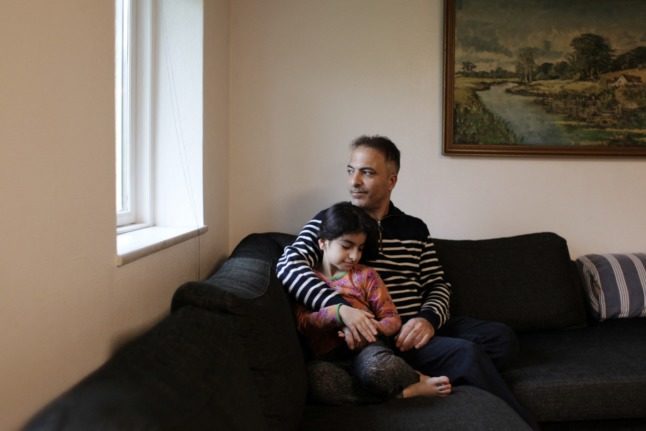“We want to push the Kurdish people inside Syria to support the revolution more… Kurdish people both inside and outside Syria need to work harder to change this regime,” said Massoud Akko, a Kurdish writer living in Norway who helped organise the conference.
The first meeting of The Conference of Syrian Kurdish Youths Abroad gathered more than 50 people from across Europe, the United States and the former Soviet Union to a large room in the Swedish parliament, Akko told AFP.
Members of parliament, politicians, writers, intellectuals and rights activists figured among the attendants.
“We tried to invite people living in Syria too, but it was too difficult for them to come. They have a travel ban,” he explained.
Akko said the ultimate goal was to establish “a pluralist, democratic civil state” that would give Kurds equal rights.
“There has been violence on the Kurdish people in Syria long before the uprising began (in March). Kurds do not have equal rights. There are many things pushing us to energetically take part in the revolution,” he said, also stressing the need to put more pressure on the international community to help push through regime change.
Organisers said in a statement the event would “provide a roadmap that provides a fair political solution for the Kurdish people’s cause according to the rules of the UN and international treaties, and at the same level with all other (ethnic groups) in Syria”.
As Saturday’s conference discussed the atrocities in Syria, where the UN says more than 2,200 people have been killed since March, a separate group of about 50 people gathered outside to protest Turkish and Iranian bombings in Kurdish areas.
Holding banners demanding: “Stop the massacres in Kurdistan,” and “Out with Iranian troops from Kurdistan,” the protesters pointed to a recent Human Rights Watch report criticising Tehran and Ankara for not doing enough to protect civilians when attacking Kurdish separatists in Iraq.
The Kurdistan Workers’ Party (PKK) of Turkey carries out periodic deadly attacks in Turkey, while the Party of Free Life of Kurdistan (PJAK) does the same in Iran, triggering air strikes from both countries.
Zanyar Kadir, a 30-year-old Iraqi-Kurd living in Sweden with a large Kurdish flag draped across his shoulders, insisted though that the bombings targeted civilians.
“They say they are killing guerrilla fighters, but they are killing families,” he told AFP, insisting: “If no one stops them, they will just continue.”


 Please whitelist us to continue reading.
Please whitelist us to continue reading.
Member comments